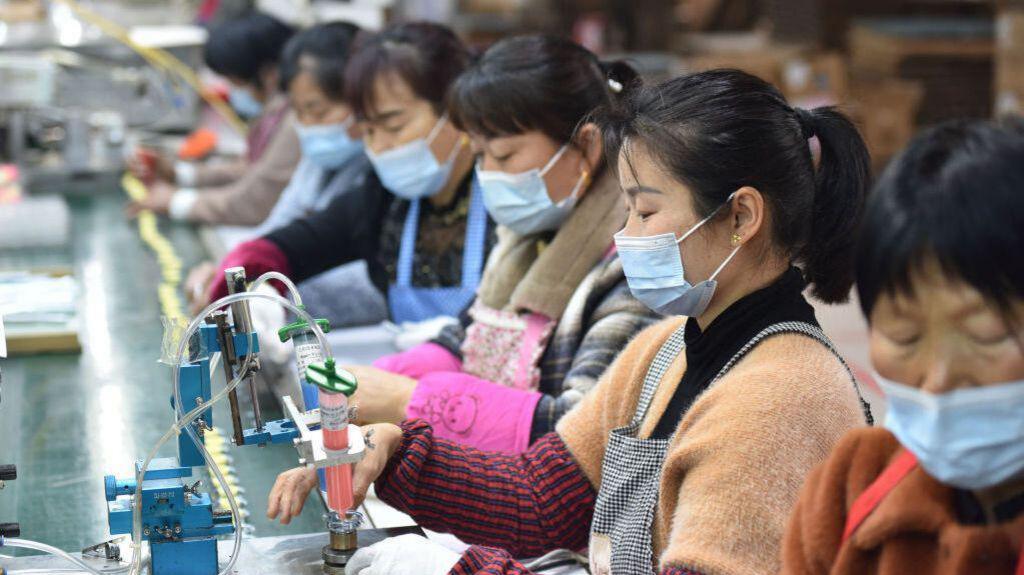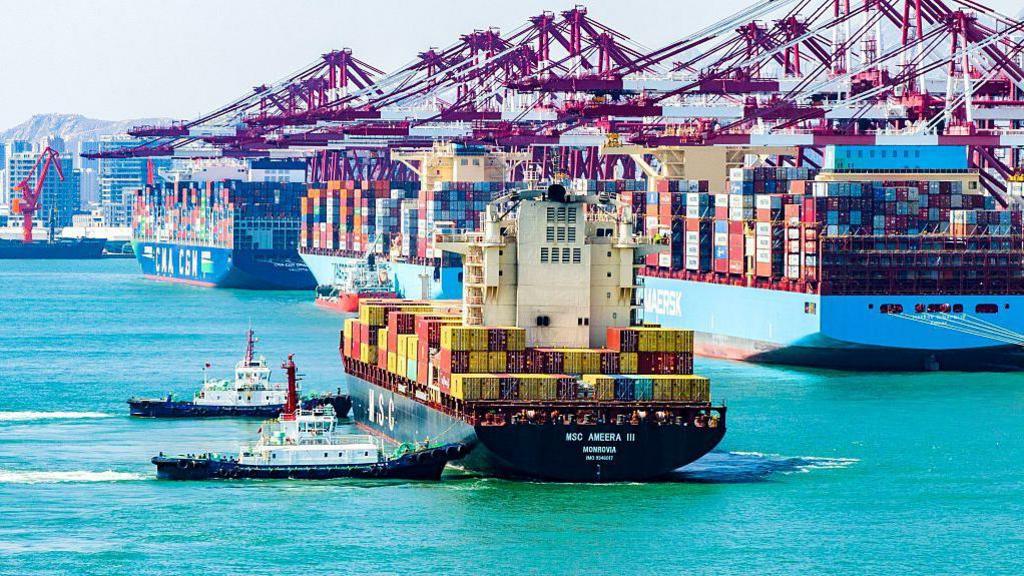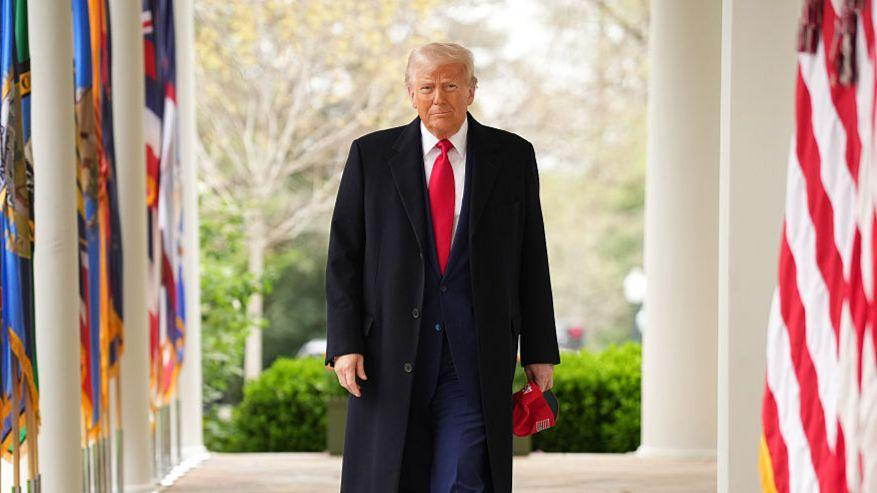Trump threatens new 50% tariffs on China

- Published
Donald Trump has threatened China with an extra 50% tariff on goods imported into the US if it does not withdraw its 34% counter-tariff, as global markets continue to fall.
Beijing retaliated on Sunday, following last week's decision by Trump to slap a 34% tax on Chinese imports as part of his "Liberation Day" that set a minimum 10% levy on nearly all of America's trading partners.
In a social media post on Monday, Trump gave China until Tuesday to scrap its countermeasure or face the 50% tax.
China's commerce ministry labelled the additional levy as "a mistake on top of a mistake" saying it will never accept the "blackmail nature" of the US.
If Trump acts on his threat, US companies could face a total rate of 104% on Chinese imports- as it comes on top of 20% tariffs already put in place in March and the 34% announced last week.
There are fears that this could deepen a trade war between the world's two biggest economies and global rivals.
In his post on Truth Social, Trump also warned that "all talks with China concerning their requested meetings with us [on tariffs] will be terminated!"
Also on Monday, the US president said he was not considering a pause on the global import tariffs to allow for negotiations with other countries.
"We're not looking at that. We have many, many countries that are coming to negotiate deals with us, and there are going to be fair deals," he said.
Trump said China had introduced its countermeasure "despite my warning that any country that Retaliates against the U.S. by issuing additional Tariffs... will be immediately met with new and substantially higher Tariffs".
Beijing shot back, saying that "pressuring or threatening China is not a right way to engage".
"The US hegemonic move in the name of 'reciprocity' serves its selfish interests at the expense of other countries' legitimate interests and puts 'America first' over international rules," Chinese embassy spokesman Liu Pengyu said in a statement.
"This is a typical move of unilateralism, protectionism and economic bullying."
Speaking from the White House, the US president said there could be both permanent tariffs and negotiations.
"We have $36tn (£28tn) debt for a reason," he said, adding that the US would be talking to China among other countries to make a "fair deal and a good deal".
"It's now America first," Trump said.
Watch: Is the US heading into a recession? Three warning signs to watch
The tariffs would come as a major blow to China's manufacturers, for whom the US is a key market for exports.
China's top exports to the US include electrical products and other machinery, computers, furniture, toys, vehicles and equipment.
The US's top exports to China are oilseeds and grains, as well aircraft, machinery and pharmaceuticals.
Uncertainty around the tariffs led to a turbulent day on global stock markets.
Markets worldwide have plunged since Trump announced the global tariffs.
The value of US stock markets dropped sharply again on opening on Monday, although they later pared those losses, while Europe's biggest markets, including London's FTSE 100, closed more than 4% down.
Asian share indexes had nosedived on Monday, with Hong Kong's Hang Seng index falling by more than 13%, its biggest one-day fall since 1997. However, most major markets made gains on Tuesday with some notable exceptions.
The key index in mainland China was broadly flat on Tuesday morning but there were more losses in Taiwan and Singapore. After being closed for national holidays, Thailand and Indonesia also saw stocks fall by more than 4% and 9% respectively.

A cargo ship at the Qianwan Container Terminal in Qingdao, China
Negotiations
Trump's post on Monday also indicated that negotiations on countries' tariff rates would "begin taking place immediately".
Trump met Benjamin Netanyahu, Israel's prime minister, on Monday in the White House. Netanyahu said that his country would eliminate the trade imbalance with the US, which he said was the "right thing to do".
"We intend to do it very quickly... and we're going to also eliminate trade barriers."
Israel faces a 17% tariff from April 9 under Trump's "Liberation Day" policy.
The US president also posted earlier, external that Japan was sending a negotiation team to discuss tariffs.
And Ursula von der Leyen, the president of the European Commission, offered Trump a "zero-for-zero tariff" deal - although she previously said that she had not ruled out retaliation.
"We are also prepared to respond through countermeasures and defend our interests," she said.
Trump said later that the EU had been formed "to really do damage to the United States and trade".
Related topics
- Published8 April
